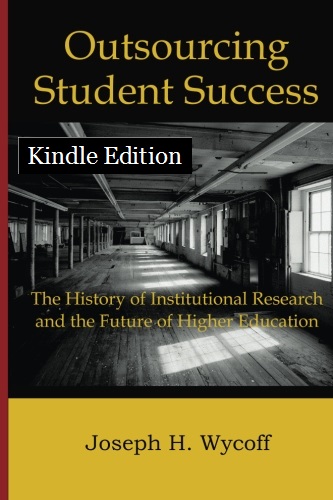International

Higher education can take a lead in fighting inequity | The first World Access to Higher Education Day (WAHED) is being held on 28 November. The aim of WAHED is to act as a catalyst for regional, national and global action to address inequalities in access to higher education.
The destruction of higher education today | IT WAS recently revealed how British universities are imitating the Premier League football in procuring star names in academia to boost their REF (Research Excellence Framework) rankings. First used in 2014 to assess the academic period of 2008 to 2013, the REF was to provide accountability for public investment in research as well as to establish ‘reputational yardsticks, for use within the HE [higher education] sector and for public information.’ Yet, many of its critics argue that it places too much emphasis of extra-academic impacts of research which has no relevance to the quality of research. Others suggest that it increases mediocrity with the emphasis of these assessment are on impacts, not intellectual or academic value. Add to this the creation of the managerial-bureaucrat within academia rose in British institutions by over one-third between 2003 and 2008, the end result is that working in British universities is having severe repercussions on the mental health of junior and senior scholars and even more negative effects on the qualities of learning.
How OECD data can misinform local university funding debates | OECD statistics are a cherry-picker’s picnic. We can’t properly compare our spending with Portugal’s by peering through the prism of a single slice of data.
Improving higher education opportunities for regional students | More regional and remote Australians will get a post-secondary education as a result of the Morrison Government’s National Regional, Rural and Remote Higher Education Strategy.
U.S. National
The Vanishing History Major | History has seen the steepest decline in majors of all disciplines since the 2008 recession, according to a new analysis published in the American Historical Association’s Perspectives on History. “The drop in history’s share of undergraduate majors in the last decade has put us below the discipline’s previous low point in the 1980s,” reads the analysis, written by Benjamin M. Schmidt, an assistant professor of history at Northeastern University. Some numbers: there were 34,642 history degrees conferred in 2008, according to federal data. In 2017, the most recent year for which data are available, there were 24,266. Between 2016 and 2017 alone, there was a 1,500 major drop-off. And even as overall university enrollments have grown, “history has seen its raw numbers erode heavily,” Schmidt wrote, especially since 2011-12.
The Growing Loan Burden for Parents of College Students | A loan program offered to parents financing their children’s college education has been the target of repeated calls for tighter restrictions on eligibility. And a report released Wednesday by the Brookings institution on Parent PLUS loans adds new fuel to arguments for restricting the program. The report finds that the average loan amount taken out by parent borrowers has more than tripled in the last quarter century, according to the report. And parents with six figures in loan debt make up a growing share of borrowers entering repayment.
AAUP Chapters Revive as Professors See Threats to Academic Freedom | Chapel Hill is the latest campus to dust off old bylaws and resurrect a chapter of the AAUP, the longtime advocacy group for academic freedom. Groups at Dartmouth College and Syracuse University have revived their chapters within the past year or so. Professors at Cornell University are in talks to do the same, according to Risa L. Lieberwitz, a labor-law professor there and general counsel to the national AAUP.
U.S. States
‘We were so overwhelmed:’ the confusing, daunting prospect of paying for college | In Idaho, it is impossible to confront the issues of college enrollment, and college completion, without staring squarely into the eye of affordability. In a rural state where campuses are often faraway and poverty is a constant presence, college affordability is not merely a factor. It is often the factor.
Institutional
Why Remind Poor Students That They Are Poor? | A similar idea is behind a new aid policy at Trinity College of Connecticut. Instead of requiring low-income students to apply for institutional aid year after year, the college will award institutional aid for four years based on a single application at the point a student first applies for admission, as long as the student is eligible for Pell Grants and has a family income of less than $60,000. Trinity can’t exempt these students from the annual application for federal aid, but college officials hope that the new policy — by removing some paperwork and uncertainty for the lowest-income students and families — will encourage more of them to enroll.
Students Evaluating Teachers Doesn’t Just Hurt Teachers. It Hurts Students. | In a recent survey of 1,000 faculty members, commissioned by The Chronicle, almost two-thirds of the respondents said they thought students today were harder to teach than those in the past, and they overwhelmingly said that student engagement had gotten worse. Administrators, who are well paid for supposedly assuring that students get good educations, apparently have never heard of grade inflation or bothered to read the studies questioning the value of evaluations, since they routinely turn the job of ranking the faculty over to the people the instructors grade.
